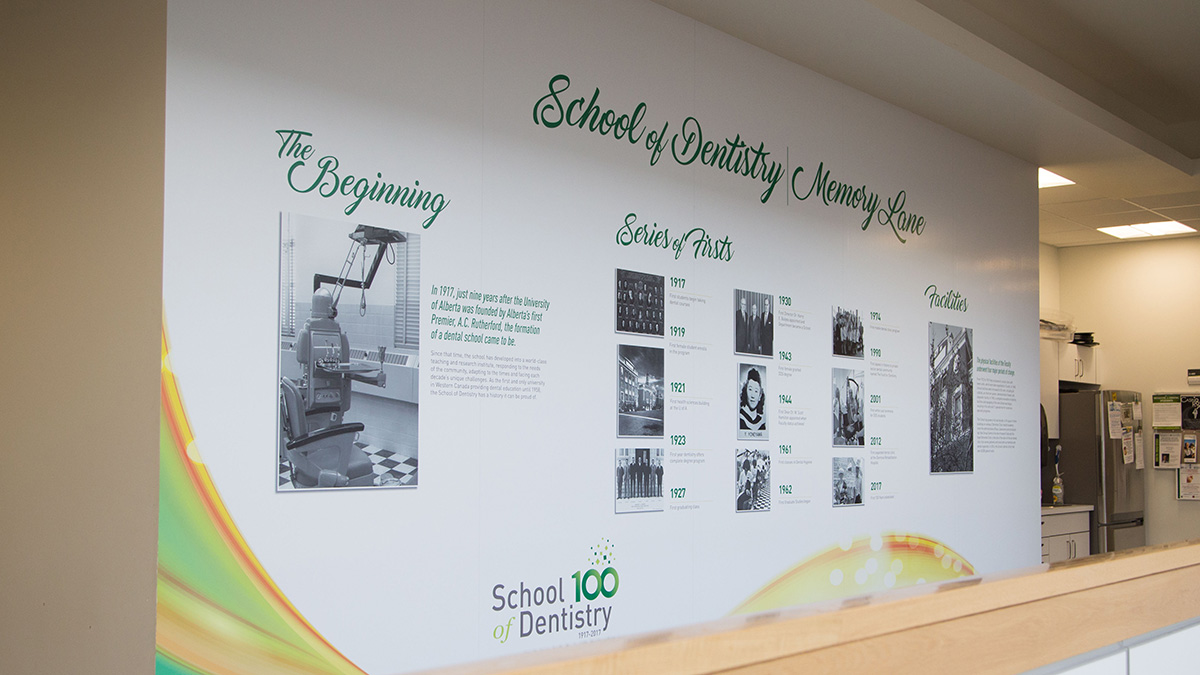School of Dentistry celebrates 100th year at U of A
 Joshua Storie
Joshua StorieThe School of Dentistry is celebrating its 100th anniversary in 2017 by the skin of its teeth.
In World War I, only one student enrolled and the school was in danger of shutting down, according to Dr. Geoffrey Sperber, a professor emeritus in the faculty. The school almost closed again in the mid-90s due to the expense of running a full-fledged dental clinic, but was saved when the Dean of the Faculty of Medicine at the time agreed to take dentistry in.
“It’s a remarkable achievement that we are able to survive,” Sperber said.
The University of Alberta’s dental school, the oldest in Western Canada, is celebrating its 100th anniversary this year. The school’s rise from the basement of the old medical school to the top floor of the Kaye Edmonton Clinic mirrors the elevation of the dentistry program at the university, Sperber said.
“I’ve seen the School of Dentistry change tremendously,” Sperber said. “It was largely a training college for dentistry with little research at the time but (it’s now) one of the top dental schools in Canada.”
Prior to 1917, becoming a dentist in Alberta required little training. In that year, the university decided to offer the first two years of dentistry as a department in the Faculty of Medicine. After two years at the U of A, students had to go for clinical training at the University of Toronto or McGill, which were the only dental schools in Canada at the time.
The decision to create a dental school so early on is impressive, said Dr. Paul Major, Chair of the School of Dentistry.
“It’s amazing the foresight that the Government of Alberta and the university had to set up dental education back in 1917,” he said.
To keep dentistry students at the U of A for their whole degree, the U of A had to invest in a clinic for clinical training. It started as six dental chairs in the basement of the old medical building — it has since become a 135 unit, state-of-the-art clinic.
The School of Dentistry’s 120 students see 40,000 patients per year at the Kaye Clinic for half the cost of private practice. Students also train at three satellite clinics in Northern Alberta and provide free dental care for youth on Saturdays with the Boyle-McCauley Healthcare Unit.
“As a school we do a lot in terms of contributing to providing oral healthcare for vulnerable population groups within our communities,” Major said.
Going into their next 100 years, Major said the school is focusing on growing its impact.
“We’re working towards solving the barriers to access of care for the vulnerable populations, and helping solve the inequities in oral health in our society” he said.




